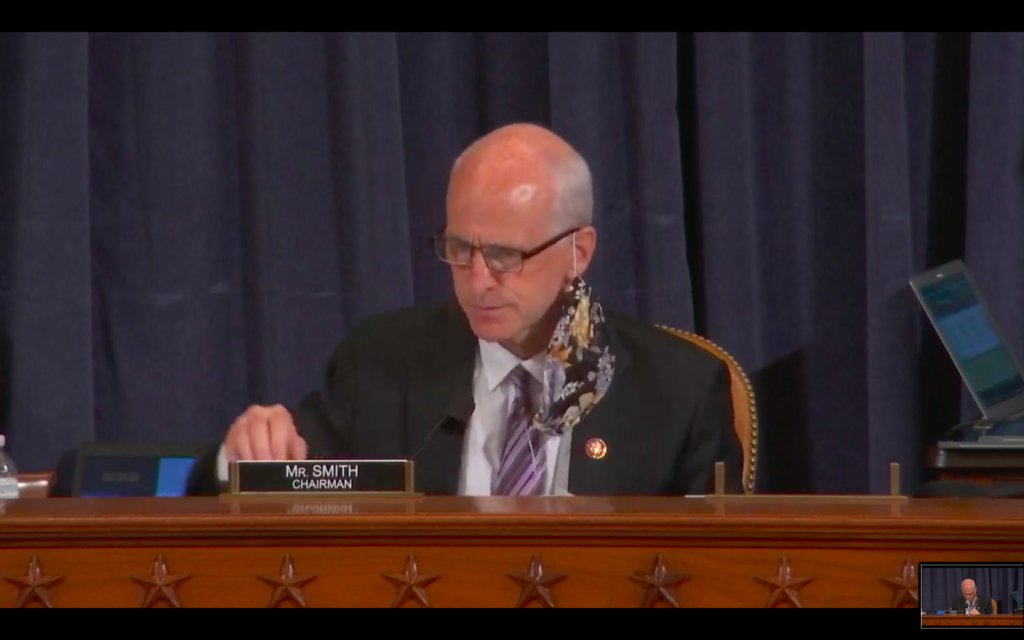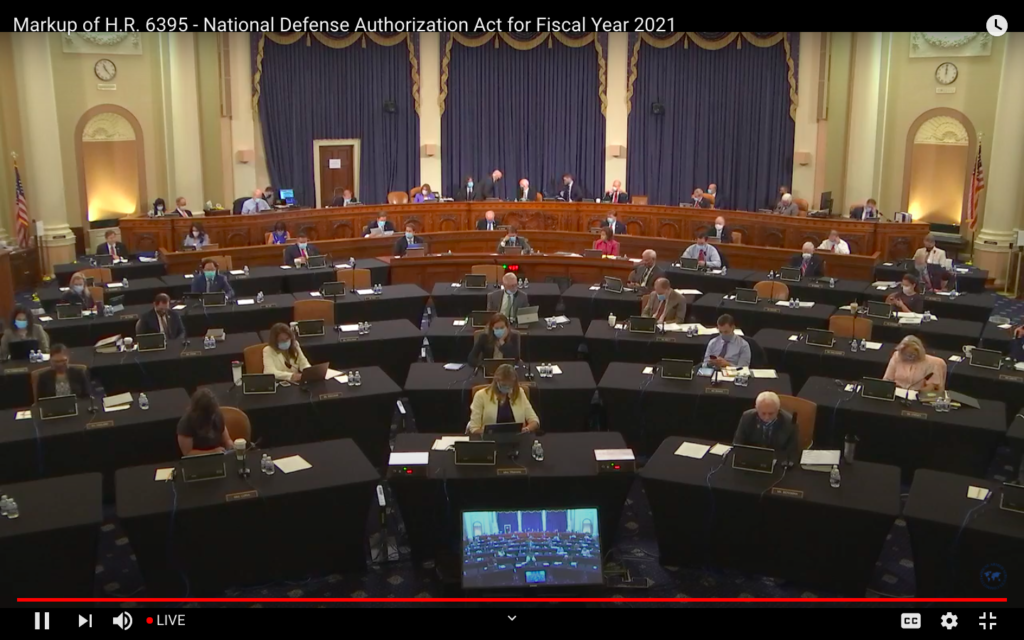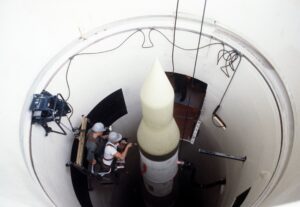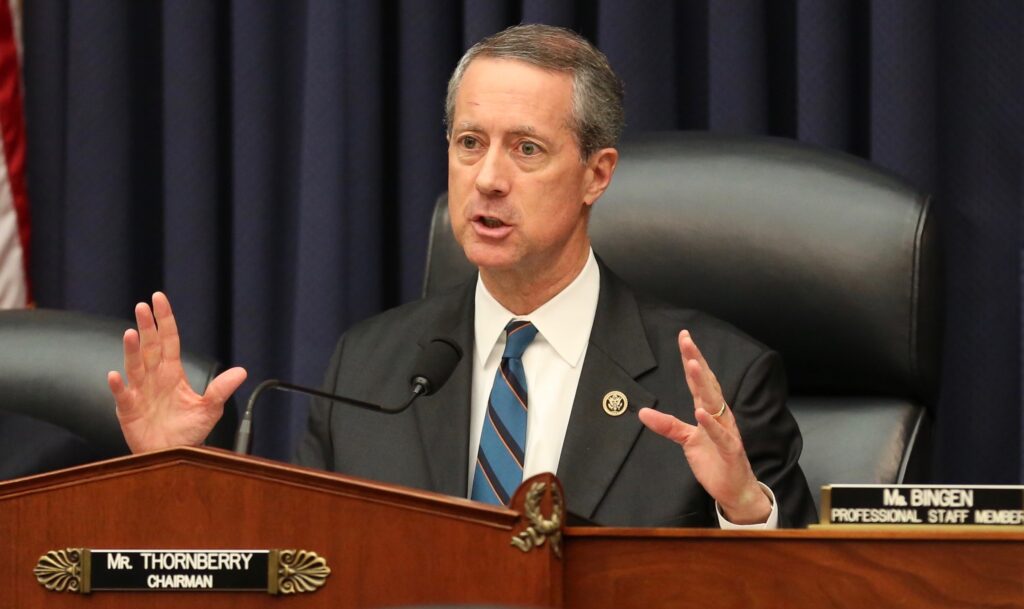
WASHINGTON: In what may be the shortest markup in the last 20 years, the masked members of the House Armed Services Committee came together shortly before midnight – while staying at least six feet apart – to pass their draft of the National Defense Authorization Act by a unanimous 56-0 vote.
That the sprawling NDAA gets passed year after year – this is the 60th – is always an impressive legislative feat. But it was especially impressive amidst a pandemic that forced members and staff to prepare hundreds of pages of legislation, covering $742 billion of spending, largely online for the first time, instead of face to face. It was also impressive in an election year, with a profoundly controversial president threatening to veto the bill if it includes an amendment to remove the names of Confederate generals from military bases – an amendment that passed last night 33 to 23.
For HASC to have approved the final, amended draft unanimously — in this year of all years — is a testament not only to decades of bipartisanship, but also to the tactical calculations of Democratic chairman Adam Smith and his longstanding alliance with the moderate and outgoing Republican former chairman, Rep. Mac Thornberry.
“I never imagined this would have been as straightforward as it got, given the resistance to changing rules, working so much remotely, and the complexity of the logistics,” one veteran HASC staffer told us. “It’s a miracle we’re done in one long day–but thanks to Smith, Thornberry and staff leadership, here we are.”


Military & government leaders: Share your perspective
Share your insight in a 10-minute survey—$10 donated to Homes For Our Troops for every response.
It’s a stark contrast to just last year, when Democrats had freshly seized the majority in the House. They voted for a lower defense budget than the GOP wanted and loaded the NDAA with amendments on contentious matters, such as nuclear weapons and Guantanamo Bay. There was so much controversy that the committee ended up debating through the night until 7 am. Thornberry came out against the NDAA, and the bill ultimately passed the House without a single Republican vote. Most of the divisive amendments ultimately died in conference with the Senate. This year, both parties were bound by a bipartisan budget agreement, HASC Democrats honored Thornberry (who retires this fall) by naming the bill after him, and Chairman Smith kept some of the more dovish proposals out of the draft — even when he personally supported them.
Consider, for example, Smith’s interjection yesterday in one of the few prolonged party-line debates, over a proposed plutonium production facility at Savannah River, Ga. You can argue, the chairman said, “whether or not we need the nuclear arsenal that is contemplated by the [2018] Nuclear Posture Review. As everyone knows, I don’t agree with that assessment … but I’m putting all of that to the side for the moment. We had that debate last year, it came out the way it came out. It’s not going to change this year.”

With Smith setting that tone, some progressives tried to take on nuclear funding but they were soundly rebuffed. When Rep. Ro Khanna proposed cutting the Air Force’s new ICBM, the Ground-Based Strategic Deterrent, by $1 billion and spending the money instead on “pandemic preparedness” – a popular cause right now – the idea was soundly rejected in a bipartisan smackdown, 44 votes to 12.
This year, COVID-19 could have created a new set of partisan divisions. There was a little fencing at the start of the marathon markup, when Thornberry noted disapprovingly that some Democratic members were participating online instead of in person. “Every member on this side of the aisle opposes remote participation in today’s markup and in all of Congress’s proceedings,” the senior Republican said, with no face mask in evidence.
“The rules in the House are very specific,” Smith said through his mask. “The only reason that a member can participate remotely, is because of the coronavirus — basically they are concerned about their individual health… So if any of you are thinking of, like, just ducking out because you’re getting tired of us, that’s not actually within the rules.”
A few minutes later, Smith took off his own mask because his glasses kept fogging up when he talked – “I can see now,” he muttered – and reminded everyone that they could take off theirs when they spoke, as long as they kept them on at other times. As far as we could tell from watching online, every member complied.

It is crucially important, Thornberry said, “this year, with all the tumultuous times around us, that we come together and are able to work together to get a defense authorization bill signed into law for the 60th time. I think the country and our military need to see and hear that.”
That doesn’t mean things are going to be smooth from here on out. The committee-approved draft now must pass the full House of Representatives, be reconciled in conference with the Senate, and, finally, signed by President Trump. Just getting through the House requires running another gauntlet of amendments, this time with fewer procedural and jurisdictional restrictions on their subject matter.
“I’m also concerned about extraneous issues in our bill,” Thornberry said. “I know from experience that this is only going to get worse as the process moves forward, and particularly this year when there are so few legislative vehicles, everybody’s gonna want to hitch their wagon to us. And the danger is that it tends to bog our bill down.”
One of Thornberry’s fellow Republicans put the same warning in rather starker terms with a dramatic reading from The Lord of the Rings. “The quest stands upon the edge of a knife,” Rep. Rob Wittman recited, quoting the movie version of elf-queen Galadriel. “Stray but a little, and it will fail to the ruin of all — yet hope remains, while the company is true.”